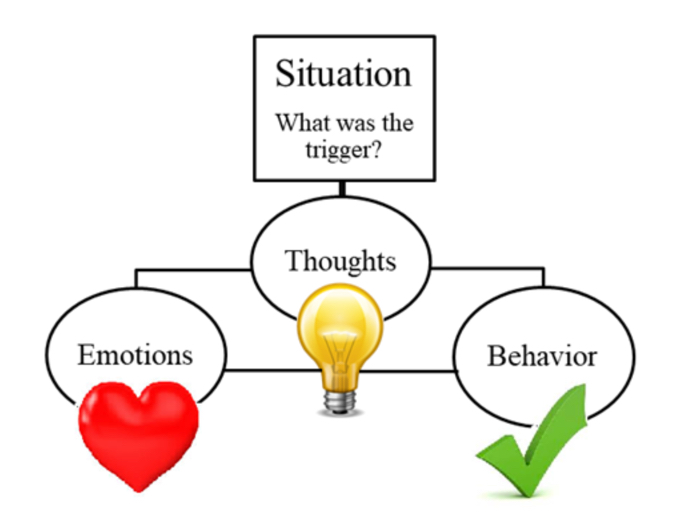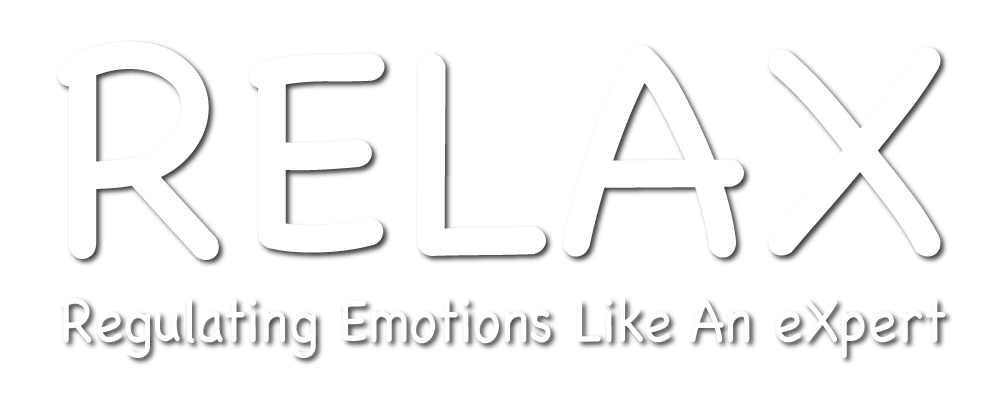In every situation, an automatic thought occurs, which affects what emotions we feel and how we behave. When automatic thoughts are negative, they can lead to negative emotions such as sadness, anger, worry, and frustration. These feelings can result in problematic behaviors which make it hard for us to complete schoolwork and engage in positive social interactions.

Thoughts
are how we interpret or think about the situation
Emotions
are the feelings that occur as a result of the thought
Behaviors
are an action in response to our thoughts and emotions
Emotion regulation skills often involve targeting negative thoughts to make them more adaptive, using strategies to help manage your body’s physical reaction to the situation, and engaging in behaviors that help you feel better.
Over time, these skills can lead to more positive thoughts and emotions in future situations, and regular use of more adaptive coping skills.
Additionally, emotion regulation skills may encourage positive behaviors that help people experience positive emotions as a result. There is no single strategy to manage difficult thoughts and emotions.
What works for one person in a situation, may not work for someone else. Over the next couple weeks we will discuss different strategies and have you practice using them in different situations to see what works best for you.
Remember: Think – Feel – Do

How Thoughts, Feelings, and Behaviors Are Related Quiz
MODULE 3: How Emotions Influence Thoughts & Behaviors
How Thoughts, Feelings, and Behaviors are Related
Identifying Thinking Traps
Challenging Negative Thoughts
My Profile
© CALMER Lab and the Child Study Center at Virginia Tech. All Rights Reserved.
Website Development by Bold Print Design Studio.
Website Development by Bold Print Design Studio.
